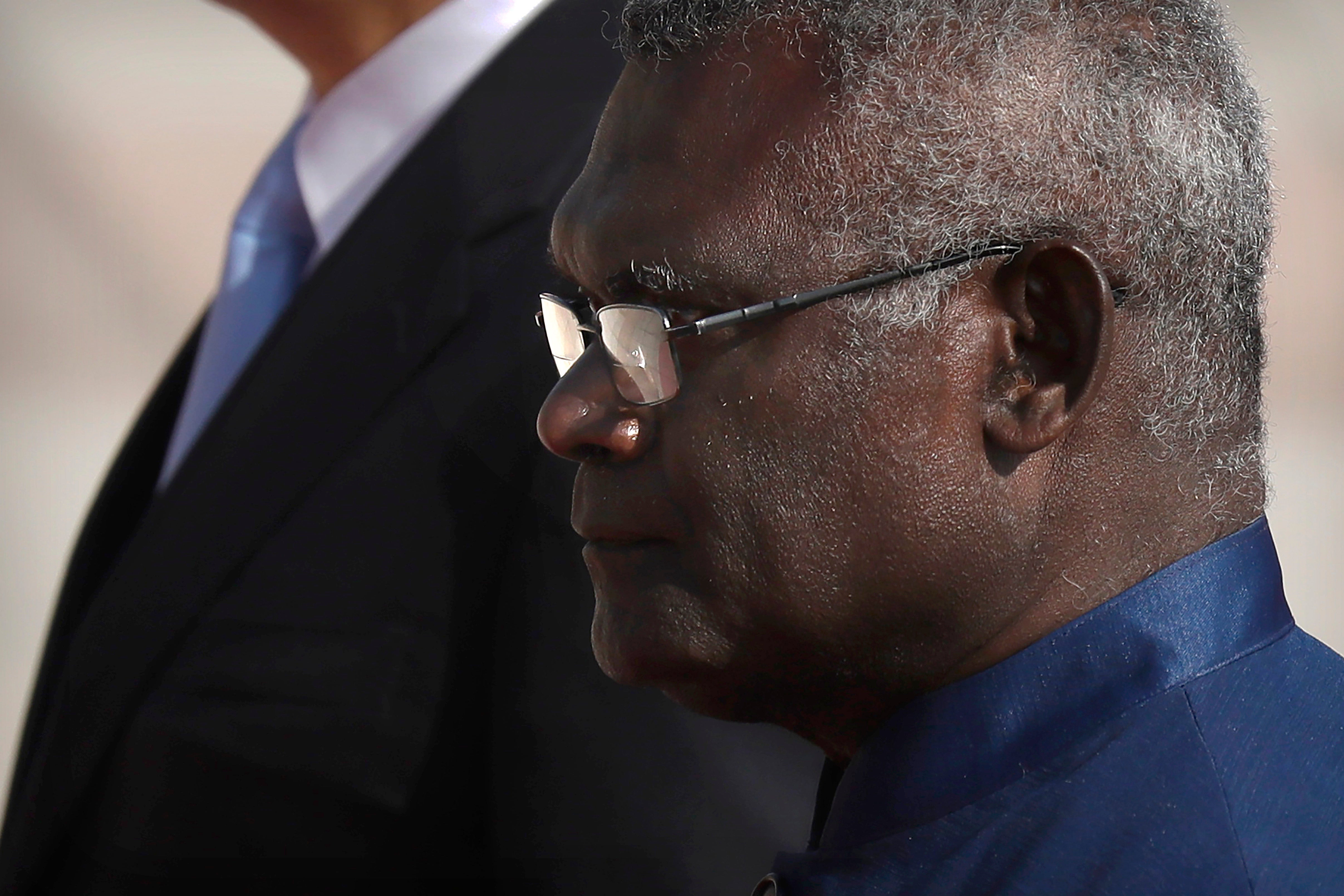US aims to counter China by opening Solomon Islands embassy
The U_S_ says it will open an embassy in the Solomon Islands, laying out in unusually blunt terms a plan to increase its influence in the South Pacific nation before China becomes “strongly embedded.”

Your support helps us to tell the story
From reproductive rights to climate change to Big Tech, The Independent is on the ground when the story is developing. Whether it's investigating the financials of Elon Musk's pro-Trump PAC or producing our latest documentary, 'The A Word', which shines a light on the American women fighting for reproductive rights, we know how important it is to parse out the facts from the messaging.
At such a critical moment in US history, we need reporters on the ground. Your donation allows us to keep sending journalists to speak to both sides of the story.
The Independent is trusted by Americans across the entire political spectrum. And unlike many other quality news outlets, we choose not to lock Americans out of our reporting and analysis with paywalls. We believe quality journalism should be available to everyone, paid for by those who can afford it.
Your support makes all the difference.The U.S. says it will open an embassy in the Solomon Islands laying out in unusually blunt terms a plan to increase its influence in the South Pacific nation before China becomes “strongly embedded.”
The reasoning was explained in a State Department notification to Congress that was obtained by The Associated Press. It comes as U.S. Secretary of State Antony Blinken is touring the Pacific, meeting diplomats from Japan, South Korea, Australia, Fiji and other nations.
The State Department said Solomon Islanders cherished their history with Americans on the battlefields of World War II, but that the U.S. was in danger of losing its preferential ties as China “aggressively seeks to engage” elite politicians and business people in the Solomon Islands.
The move comes after rioting rocked the nation of 700,000 in November. The riots grew from a peaceful protest and highlighted long-simmering regional rivalries, economic problems and concerns about the country’s increasing links with China. Rioters set fire to buildings and looted stores.
Solomon Islands Prime Minister Manasseh Sogavare survived a no-confidence vote the following month, telling lawmakers in a fiery 90-minute speech that he’d done nothing wrong and would not bow down to “the forces of evil” or to “Taiwan’s agents.”
The U.S. previously operated an embassy in the Solomons for five years before closing it in 1993. Since then, U.S. diplomats from neighboring Papua New Guinea have been accredited to the Solomons, which has a U.S. consular agency.
The embassy announcement fits with a new Biden administration strategy for the Indo-Pacific that was announced Friday and emphasizes building partnerships with allies in the region as a way to counter China's growing influence and ambitions.
In its notification to Congress, the State Department said China had been “utilizing a familiar pattern of extravagant promises, prospective costly infrastructure loans, and potentially dangerous debt levels,” when engaging with political and business leaders from the Solomon Islands.
“The United States has a strategic interest in enhancing our political, economic, and commercial relationship with Solomon Islands, the largest Pacific Island nation without a U.S. Embassy,” the State Department wrote.
The State Department said it didn't expect to build a new embassy immediately but would at first lease space at an initial set-up cost of $12.4 million. The embassy would be located in the capital, Honiara, and would start small, with two U.S. employees and about five local staff.
The State Department said the Peace Corps was planning to reopen an office in the Solomon Islands and have its volunteers serve there, and that several U.S. agencies were establishing government positions with portfolios in the Solomons.
“The Department needs to be part of this increased U.S. presence, rather than remaining a remote player,” it wrote.
Blinken on Saturday left for Fiji after visiting the Australian city of Melbourne where he had a meeting with his counterparts from Australia, India and Japan. The four nations form the so-called “Quad,” a bloc of Indo-Pacific democracies that was created to counter China’s regional influence.
___
Associated Press Diplomatic Writer Matthew Lee in Washington contributed to this report.
Subscribe to Independent Premium to bookmark this article
Want to bookmark your favourite articles and stories to read or reference later? Start your Independent Premium subscription today.